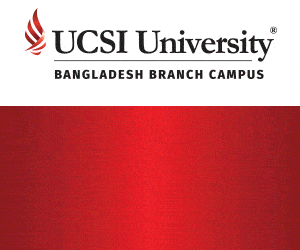Digital transformation in learning is the 4th Industrial Revolution. Futurist Thomas Fey predicted that two billion jobs will disappear by 2030. Furthermore, 65 percent of children starting their education now will end up in new types of jobs that currently do not exist.
Don Carlson, Director, Education, Microsoft Asia Pacific said: “Digital disruption has brought about a massive change in the workplace. It is imperative that educational institutions are moving ahead to equip students with skills that they will need in the very near future.”
He further accentuated the need for digital transformation in education stating Traditional teaching often does not scale. THIs is where tech leads to balance the differences.
In this regard, Microsoft focuses on four key features to developing a future-ready workforce.
- Engage students by adopting digital, interactive, and personalized content. Students need to prepare for a future where analytical skills strongly coupled with creativity is highly sought after.
- Empower faculty and non-teaching employees so they can access and use the best tools, in and out of classrooms, to engage the students.
- Optimize institutions by investing in analytics to gain real-time intelligence.
- Transform learning by moderninzing teaching methods with the help of agile, highly-automated digital processes.
To make this a reality, educational leaders need to adopt a policy shift. An example of students in Cambodia showed they were far too focused on achieving business degrees. Instead, allocated seats were removed from business studies and placed for engineering so more students had the option to diversify. This is a similar problem in Bangladesh where the physical constraints of degree options create a barrier for expanding into developing future-relevant skills.
In Bangladesh we are heavily invested in having physical presence in stone and mortar classrooms. In the case of classrooms being a physical barrier at times, Don Carlson responded “Classrooms may or may not exist soon in the future of digital education. Are classrooms really needed?” Impact of digital transformation is more relevant in higher education where degrees are often treated simply as markers for hiring. Yet, there appear no direct correlation between having a degree and achieving a level of success.
Don further elaborated that the only way student can be readied for the future is in focusing on the emerging technologies. One of the most promising and in ways most concerning is AI or Artificial Intelligence. AI able to learn and perform tasks independently, in many cases eliminating the need for constant human supervision. Examples include robots and chatbots.
Another important term is the Internet of Things (IoT). This is where a network of sensors embedded into devices collect data or be remotely controlled. Examples include smart buildings and home devices. Quantum computing and wearable technologies are ushering in a faster, newer, unheard of ways to access and utilize data.
While the future seems immensely promising, there are the barriers. 87 percent leaders in Asia Pacific’s education sector accept a transformation to digital education is needed to facilitate future growth. Yet only 23 percent have a full strategy to roll out. This disparity is a key finding in among other in Microsoft Asia Digital Transformation Survey, aiming to comprehend the scope of educational leaders trying to create a future ready workforce.
The Microsoft Asia Digital Transformation Study surveyed 1,494 business leaders from Asia Pacific working in organizations with more than 250 employees from 13 Asia Pacific markets. All respondents were pre-qualified as being involved in shaping their institution’s digital strategy.
In the end, a big question boils down to that of security threats. Advances are being made that make it safer to rely on the cloud than on tradition forms of IT. “In the end, people don’t use technology that they don’t trust. Ensuring security, privacy, and compliance are key to enabling educational institutions to carry out digital transformation with confidence. As such, protecting sensitive data requires a new and integrated approach, all of which we have invested in significantly,” said Carlson.








